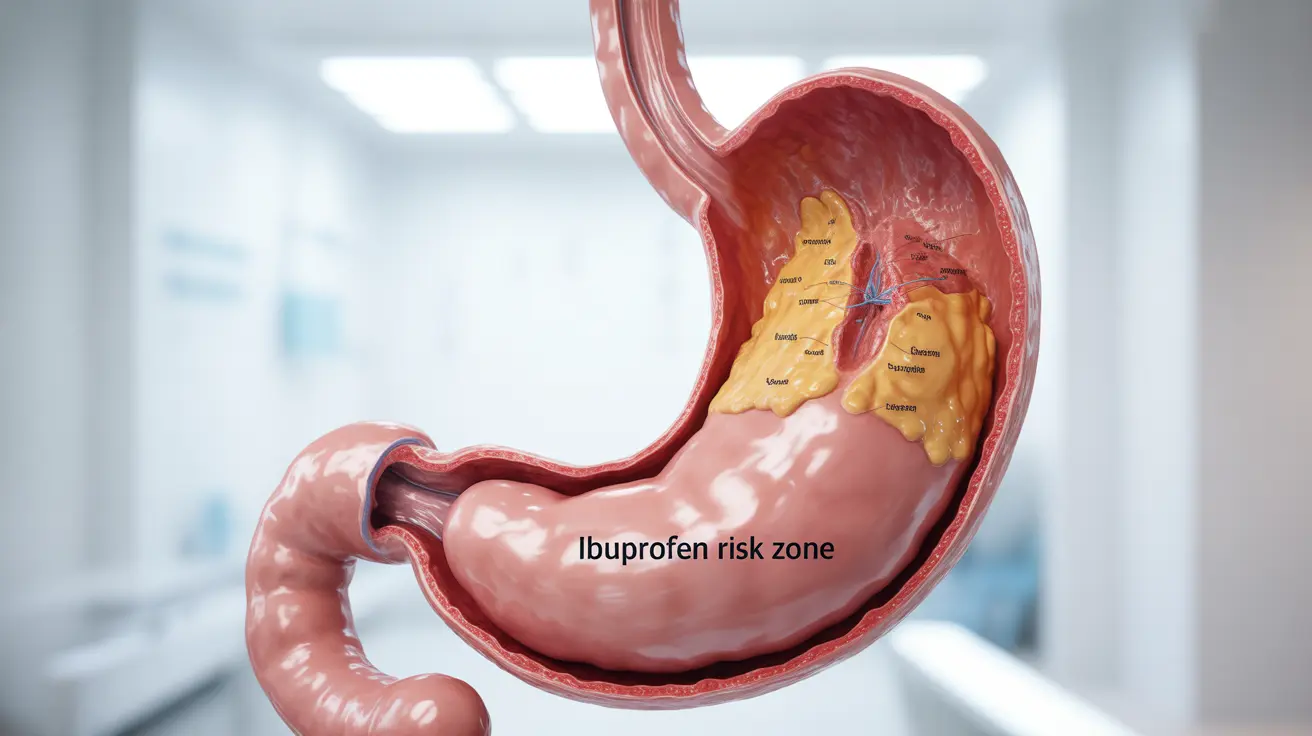Ibuprofen is a widely used over-the-counter pain reliever and anti-inflammatory medication, but its regular use can potentially lead to serious digestive complications, including stomach ulcers. Understanding this risk is crucial for anyone who takes ibuprofen, whether occasionally or as part of ongoing pain management.
As a non-steroidal anti-inflammatory drug (NSAID), ibuprofen works by blocking certain chemicals in your body that cause inflammation. However, these same mechanisms can affect the protective lining of your stomach, potentially leading to ulcer formation.
How Ibuprofen Affects Your Stomach
Ibuprofen can impact your stomach health through multiple mechanisms. The medication reduces the production of protective substances called prostaglandins, which normally help maintain your stomach's protective barrier. This reduction leaves your stomach more vulnerable to damage from stomach acid.
Additionally, ibuprofen can irritate the stomach lining directly, potentially causing erosions that may develop into ulcers over time. This risk increases with regular use or higher doses of the medication.
Warning Signs of Stomach Ulcers
Recognizing the early warning signs of stomach ulcers is essential for preventing serious complications. Common symptoms include:
- Burning pain in the upper abdomen
- Feeling full quickly during meals
- Bloating and gas
- Nausea
- Loss of appetite
- Dark, tarry stools (indicating bleeding)
Risk Factors and Prevention
Certain factors can increase your risk of developing ibuprofen-related stomach ulcers:
- Being over 60 years old
- Having a history of stomach ulcers
- Taking high doses of ibuprofen
- Combining ibuprofen with other NSAIDs
- Using ibuprofen with alcohol
- Taking blood thinners
Protective Measures
If you need to take ibuprofen regularly, several strategies can help reduce your risk of developing ulcers:
- Take ibuprofen with food
- Use the lowest effective dose
- Consider alternative pain management strategies
- Ask your healthcare provider about protective medications
- Avoid alcohol while taking ibuprofen
Special Considerations for Children
Children can be particularly sensitive to the effects of ibuprofen. Parents should be aware that while ibuprofen is generally safe for children when used as directed, prolonged use or higher doses can increase the risk of stomach problems.
When to Seek Medical Help
Some symptoms require immediate medical attention:
- Severe abdominal pain
- Vomiting blood or coffee-ground-like material
- Black, tarry stools
- Severe dizziness or weakness
- Difficulty breathing
Frequently Asked Questions
Can ibuprofen cause stomach ulcers and how does this happen?
Yes, ibuprofen can cause stomach ulcers by reducing protective prostaglandins in the stomach lining and directly irritating the stomach wall. This combination makes the stomach more susceptible to damage from stomach acid.What are the common symptoms of ulcers caused by ibuprofen use?
Common symptoms include burning stomach pain, bloating, nausea, loss of appetite, and in severe cases, dark stools or vomiting blood.How can I reduce my risk of developing ulcers if I need to take ibuprofen regularly?
Take ibuprofen with food, use the lowest effective dose, consider alternative pain management options, and discuss protective medications with your healthcare provider. Also, avoid alcohol and other NSAIDs while taking ibuprofen.Are children also at risk of developing stomach ulcers from ibuprofen?
Yes, children can develop stomach ulcers from ibuprofen use, though this is less common when the medication is used as directed. Parents should follow dosing instructions carefully and consult healthcare providers about long-term use.What should I do if I experience signs of bleeding or severe pain while taking ibuprofen?
Seek immediate medical attention if you experience severe abdominal pain, vomit blood or material that looks like coffee grounds, have black tarry stools, or feel dizzy and weak. Stop taking ibuprofen and contact your healthcare provider right away.




